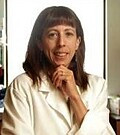The placenta has been called the ‘twin’ of the developing fetus, subject to the same maternal environment as the child. As such, substances that the mother is exposed to may alter the makeup and function of the placenta as well as the development of the offspring. Recent research has focused on epigenetic changes in placental tissue in response to nutritional alterations and exposures to chemicals and metals, with an analysis of the consequences for fetal development. Speakers on this call presented new findings on epigenetic placental research, and discuss the implications for developmental origins of health and disease (DOHaD).
Featured Speakers
Carmen J Marsit, PhD, is an Associate Professor of Pharmacology & Toxicology, an Associate Professor of Community and Family Medicine and Co-Director of the Program in Cancer Epidemiology at the Norris Cotton Cancer Center in the Geisel School of Medicine at Dartmouth. Dr. Marsit’s research focuses on epigenetic regulation and works to describe the impact of the environment on the human epigenome. His laboratory examines DNA methylation and miRNA expression as key epigenetic mechanisms of interest. Specifically, one avenue of study examines alterations in genomic imprinting in human placenta and its association with environmental exposures, and newborn developmental outcomes.
 Cheryl S. Rosenfeld, DVM, PhD, is an Associate Professor in Biomedical Sciences and Bond Life Sciences Center Investigator at the University of Missouri College of Veterinary Medicine. Dr. Rosenfeld’s research focuses on early life exposure to maternal diet enriched in fats, methyl-supplements, or bisphenol A (BPA), and how it may alter conceptuses and offspring’s developmental. Her recent review paper examines evidence that male and female zygotes and conceptuses diverge in their responses to shifting environmental conditions and whether these contrasting sexually dimorphic responses underpin later DOHaD outcomes, namely neurobehavioural changes.
Cheryl S. Rosenfeld, DVM, PhD, is an Associate Professor in Biomedical Sciences and Bond Life Sciences Center Investigator at the University of Missouri College of Veterinary Medicine. Dr. Rosenfeld’s research focuses on early life exposure to maternal diet enriched in fats, methyl-supplements, or bisphenol A (BPA), and how it may alter conceptuses and offspring’s developmental. Her recent review paper examines evidence that male and female zygotes and conceptuses diverge in their responses to shifting environmental conditions and whether these contrasting sexually dimorphic responses underpin later DOHaD outcomes, namely neurobehavioural changes.
 Karin B. Michels, MPH, ScD, PhD, is an Associate Professor of Obstetrics, Gynecology and Reproductive Biology at Harvard Medical School and Associate Professor in the Department of Epidemiology at the Harvard School of Public Health. Dr. Michels’ research focuses on life course epidemiology and the importance of early life events for disease susceptibility. She has an expertise in endocrine disrupting chemicals (EDCs) and has published widely on this subject. Dr. Michels heads and epigenetic laboratory at Harvard Medical School where she studies the effect of early life exposures as they may affect the establishment of the DNA methylome. Dr. Michels has authored and co-authored over 150 peer-reviewed scientific papers and has been P.I. for numerous grants from NIH, DoD, ACS, and other organizations.
Karin B. Michels, MPH, ScD, PhD, is an Associate Professor of Obstetrics, Gynecology and Reproductive Biology at Harvard Medical School and Associate Professor in the Department of Epidemiology at the Harvard School of Public Health. Dr. Michels’ research focuses on life course epidemiology and the importance of early life events for disease susceptibility. She has an expertise in endocrine disrupting chemicals (EDCs) and has published widely on this subject. Dr. Michels heads and epigenetic laboratory at Harvard Medical School where she studies the effect of early life exposures as they may affect the establishment of the DNA methylome. Dr. Michels has authored and co-authored over 150 peer-reviewed scientific papers and has been P.I. for numerous grants from NIH, DoD, ACS, and other organizations.
The call was moderated by Karin Russ, National Coordinator of CHE's Fertility and Reproductive Health Working Group.
